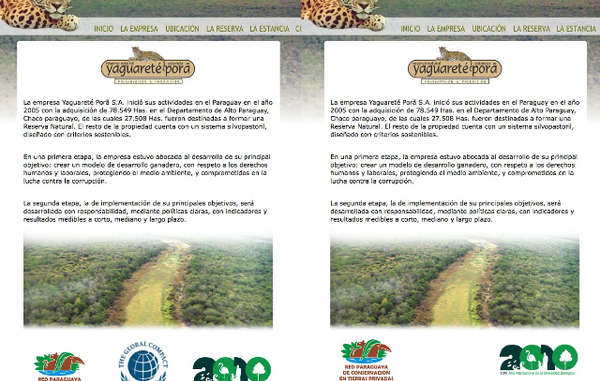 |
| A Totobiegosode woman after she was forced out of the forest, Paraguayan Chaco. © Ruedi Suter/Survival |
STOP PRESS
August 31st, 2011
Yaguarete has now reinstated the UN Global Compact logo on its website.
++++++++++++++++++++
Ayoreo Indians in Paraguay have been left amazed by the UN’s reaction to a formal complaint they issued against cattle ranching company Yaguarete Pora.
In May, Ayoreo leaders issued a formal complaint against the company’s involvement in the UN Global Compact, an initiative allegedly designed to encourage businesses to comply with environmental and human rights principles.
The Ayoreo pointed out that the company has been found guilty of illegally clearing forest in their ancestral territory and withholding evidence proving that uncontacted Ayoreo Indians are living there.
The UN’s response to the Indians’ request that it remove the company from the initiative stated, ‘We have neither the resources nor the mandate to conduct investigations into any of our participants.’
But now the UN has written to Yaguarete. However, far from taking issue with its human rights abuses, the UN complained that Yaguarete was displaying its logo without having filled in the necessary form, and asked it to remove the logo from its website.
 |
| Now you see it........................................................ Now you don't © Survival |
The Global Compact logo immediately disappeared from the company’s website.
Uncontacted Indians could be wiped out if the cattle ranchers continue to destroy the forest on which the Indians depend for their surviva
l
l















